Faces of the Game: Rebecca Cox Q&A
Faces of the Game: Rebecca Cox Q&A
Cox Talks Her Beginnings in Disc Golf From a Young Age

Rebecca Cox grew up in the sport and sat down with DiscGolfer Magazine for a Q&A. Photo: DGPT
Rebecca Cox grew up in the sport and, in turn, watched the sport grow up with her. Now, as a 24-year-old veteran on the Tour, she’s constantly working on her game as the FPO field rises alongside her. I recently spoke with Rebecca about her start in the game, her work ethic, the state of women’s disc golf and a moment when she realized the impact that she’s already had on and off the course. — Hayden Henry
(This story first appeared in the 2020 Fall issue of DiscGolfer Magazine)
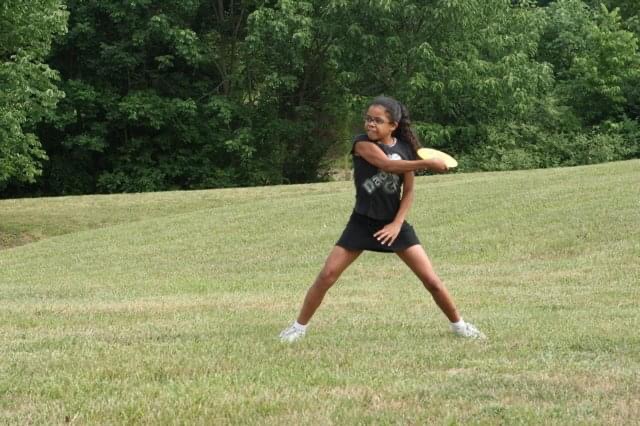
Rebecca Cox got started in the game at the age of 8. Photo: Rebecca Cox
DiscGolfer: Your story is pretty well-known, with you getting introduced to the game at a young age by your father. How did it all start?
My dad, David Cox, had been playing years before I was born. He started in Florida, played with Ken Climo, and went pro after just nine months of playing. He got obsessed with the game and is still obsessed with it. Growing up, it was a big part of my life. I knew what disc golf was early on. He started teaching me the sport when I was eight years old. I competed in some junior challenges with other kids and eventually all of the people in Cincinnati, they knew who I was, they knew my dad, so eventually they let me play in regular tournaments with adults. I was a 12-year-old. That was pretty cool. I played my entire childhood.
I slowed down for a couple of years after high school, just trying to figure out what I wanted to do with my life. I went to college for a little bit but came back home and decided, “Hey, I’ve been disc golfing for a while. Maybe I’ll try that.” I didn’t know anything about touring, no experience with any of that. I just packed up my car and hit the road. The rest is history.
Was playing disc golf something that your dad pushed you to do or was it something that you were drawn to early on? Or maybe a little bit of both?
It was a little bit of both. I’m sure there were days when I was younger that I didn’t want to go out to the park or whatever. But I was hooked. My dad, he’s a natural coach and is super competitive. So am I. I get that from him. He always wanted to see me out there playing and took me to tournaments. As a little girl, sometimes I didn’t want to play tournaments but now, looking back, I have to thank him for taking me out there and having me play. Those early events only helped me grow as a competitor. For the most part, I was there as my own competitor. He was doing his thing and I was doing mine.
Was there a moment that stands out when you were younger when you knew that you were hooked and that this was something that was going to be a part of your life?
That really didn’t happen to me until I got out on tour. Early on, I didn’t think or know that I was going to make a career out of it or anything, even though my dad wanted me to and knew that I could do that. There were times when I was burned out a little bit but as I got older and around that college age, I thought that maybe I would try something else. I went to college and to see what I would like and what I wanted to do. Then I realized that I don’t like anything else. I hit the road and was hooked then.
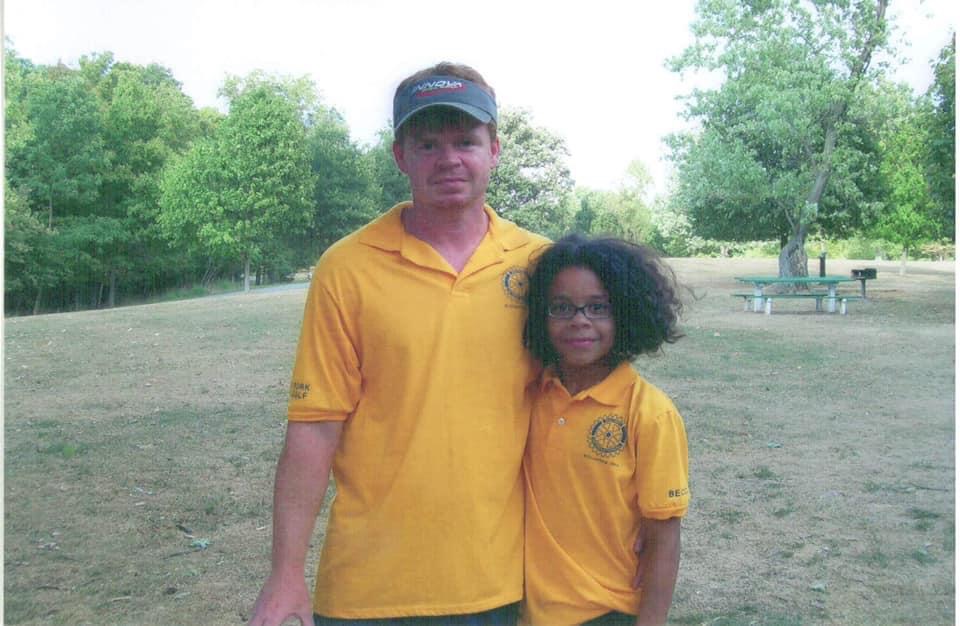
David Cox, a pro from Florida, got his daughter into the game. Photo: Rebecca Cox
With your dad as coach and being a competitor, has his advice or coaching changed over the years as you rise through the ranks in your career?
He’s always been the person that I talk to about my game for the most part. We have similar mindsets and he is always watching UDisc Live or if I’m on live coverage — he’s always watching. Especially those first couple of years on tour, I would literally putt out on 18 and I would get a text message two minutes later of “Great round kid.” I’ve always talked to him after my rounds to get advice and just that fatherly wisdom. We talk about a little bit of everything when it comes to disc golf.
You joined the PDGA in 2007 and the growth from 2007 until now has just been insane, almost tough to describe. You’ve seen the sport take off to where it is right now. How would you describe the growth of the game since you started playing?
It has really taken off over the past decade and that is obvious. But what is really crazy is right now in 2020 during the pandemic and quarantine. Any course that we go to anywhere in the country, you just see so many people, so many families out there playing. That used to not really be a thing.
When I was a kid, no one really knew what disc golf was. I honestly gave up on telling kids at my school that I played disc golf because they would just look at me weird. They had no idea. That’s not the case right now.
Now, on the road, I’ll wear a Latitude 64 hoodie and people will ask me randomly if that is disc golf and I’m like “oh, yeah it is.” I’m like “wow, people know what this is now.” It’s been so much fun to watch from going to no one knowing to people bringing it up in public.
The youth movement has been a big change since I started playing. I remember my dad really trying to talk to companies about sponsorship and back then, companies really didn’t sponsor kids. Now they have whole teams for kids. It’s been really cool to see.
You hit the road in 2017 at 20 years old. What was the driving force behind beginning to tour?
It was a combination of things. I was sick of going to college and changing my degree over and over, not knowing what I wanted to do with my life. On one hand, I really wanted to figure it out, get an education and a degree, but on the other hand I felt like I was just wasting money. I moved back home and just thought about what I can do and I just kept coming back to disc golf.
Honestly, it was one of those things where it might not work out. It was a leap but I wanted to get out there and give it a try.
The first tournament that year was Vegas and you cashed.
That was my first big event. That year, only the people that cashed played the final round. It was awful. I played really bad. The first few tournaments were for sure a wake-up call. I hit the road and thought “Oh, I’m pretty good at this. I was 900-rated at 16 so maybe I can hang.”
Then you show up and there are all these people that are really good. It was different than I was expecting but I was so excited. It fired me up to just keep working and working on my game. It was a quick lesson. I adjusted and finished the year strong.
What about that second year on tour? What is the biggest change between the first and second year when you’re out on the road?
The biggest change was my mentality. As I mentioned, the first year was like “Is this something I want to do?” The second year that was no longer a question. So it was a matter of seeing if I could compete at a high level. It was the year of measuring myself to see where I stand with the other women out there. Like anything, it was more about experience. I was more comfortable, knew the ropes and knew for sure what I wanted to do.
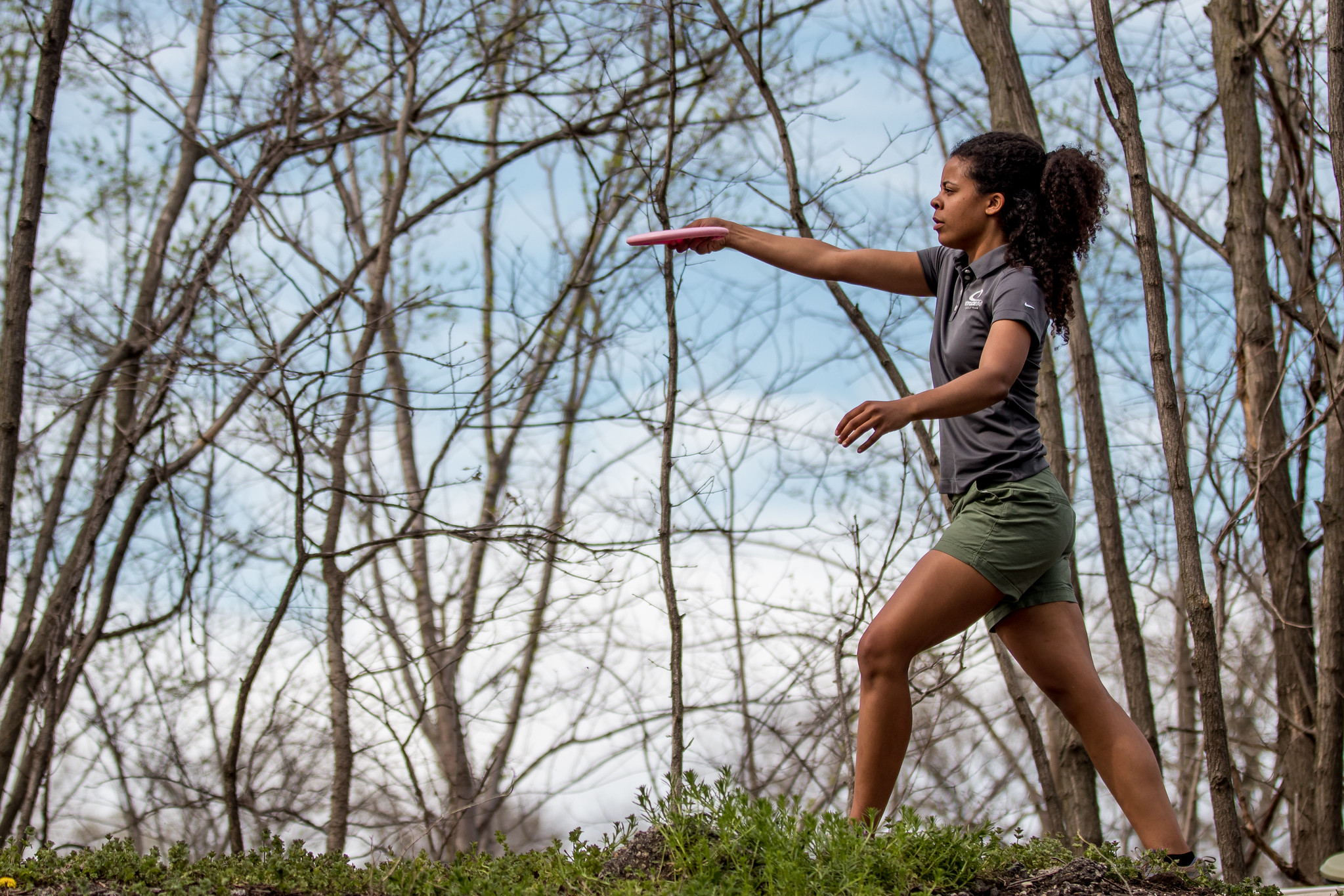
Rebecca at the 2018 Glass Blown Open. Photo: PDGA
In 2018, you really started making a name for yourself and were out there.
I had my struggles with my putter. I heard people say I was the worst putter on tour. That was probably the truth. I had to figure some things out. Once that switch flipped when I decided I really wanted to compete, I hit it hard and improved, especially at Worlds that year. I was really pushing myself to do what I thought I could do and what I was capable of doing. That’s exactly what I’ve been doing since that year.
Moving right along year by year. Last year was a huge year for you. Are things settling in at this point?
I had played some of the courses a few times so I had that experience there. I’m know in the community. I have my friends. I have my own vehicle. I finally felt like I was settled into the lifestyle. I was comfortable and really was able to settle down and play the game.
What did it mean to you to sign a two-year deal with Lattitude 64?
It was such a satisfying moment as an athlete in an individual sport. It’s so nice to know that Latitude believes in me and they want me on the team for that long. The Trilogy family is close-knit and just amazing.
Now on to 2020 and the interesting experience that this year has been so far. So, Offseason 1.0, coming off the leg injury at the end of 2019, what was the mentality coming into the year before the coronarvirus hit? What were some things you wanted to do?
I was playing with the idea of a new run-up but never really committed to making the change. I was more focused on getting my van ready for the year in the first offseason.
But then, as soon as we got going and everyone is excited to be back out there, it all came to a screeching halt.
Waco, that was so weird. As touring golfers, we know exactly where we’re going to be every single weekend. Just about every day is planned in some way as far as getting here or there or doing this or that. Having all of this news coming in was scary. Our entire lifestyle was about to change and come tumbling down.
That last round in Waco, it was the younger girls (Eveliina Salonen, Henna Bloomroos, Heather Young) and myself on the top card, which would’ve been so exciting in normal times. It still was in a way I guess but it was just all so weird. We didn’t have spectators or anything like that and it just definitely didn’t feel like a final round. It felt odd and it was hard to really focus on the golf with everything going on.
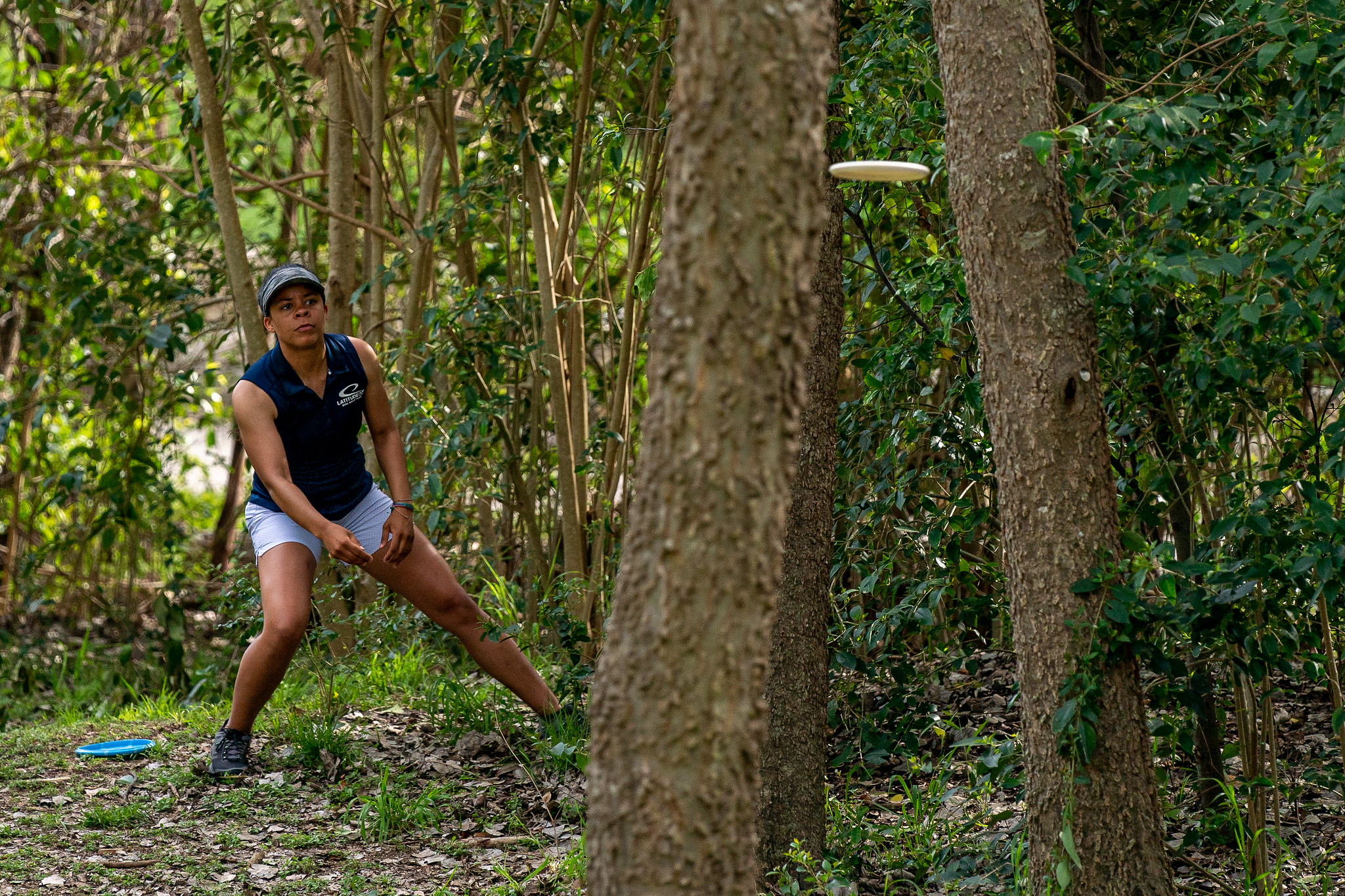
Rebecca throws an upshot at the 2020 WACO, the day before the COVID-19 pandemic shut down the tour. Photo: DGPT
Offseason 2.0. How did you spend that time and what was the approach to that?
I stayed in the Tulsa, Oklahoma area. I decided that, if I wanted to become the player that I wanted to be and knew I could be, then I had to make a change form-wise and work on a new run-up. There wasn’t a better time to do that. For a while, we didn’t even know when the next time we would compete would come so I focused on improving my game and it started with the run-up.
What’s the process like when you change a major component of your game? Was it a start from scratch thing?
I broke it all down. Luckily, I was with other pro disc golfers, like Nathan Queen, who I could play with and have him watch my form to give me critiques and things to tweak. It’s a frustrating thing. I played the same way for like 14 years and was so confident with my accuracy and things like that but I had to make a change. I didn’t want to see myself slide backwards. It’s still a work in progress and a test of patience. You want it to be a “work right now” thing but it’s not like that. You have to work.
I figured out a basic run-up that was working for me. I’ve hit the field. It’s tempting to play these rounds and revert to my old ways. You have to commit 100%. I had to battle past that.
Everyone was in limbo for a few months and then we’re back with the Dynamic Discs Open. What was that like? How was Emporia this time?
It was definitely a different trip to Emporia. Everyone was so excited to get back out there and play. Everyone was there, ready to compete and it seemed like there were nerves. The restrictions were obviously different but it was nothing that we couldn’t deal with.
To me, the CBSSN deal was really cool. Any exposure for disc golf is a good thing. Having a professional setup of cameras — there were like 12 cameras out there or something — was awesome to see. It was a feel all around of “this is it, this is chance to represent our sport and really expose a lot of people to the sport.”
That was the first skins match I’ve ever played in, so no pressure or anything, right? It was a lot of fun.
Now we’re heading in this ‘new normal,’ how would you describe the protocols that the pros have to go through and how is everyone handling it?
It’s a little different within the whole culture of disc golf, which is a huge part of the game. At the beginning of the round, there’s high fives and the camaraderie. It’s definitely a lot different, but we’ve all adapted. You have to think about what you’re doing a little more. It’s so natural to high five someone or like when you’re putting before the round, you can’t pick up someone’s putter. That’s hard not to do. You leave it lying there even though you’re standing right next to it and it’s this awkward “oh, sorry.”It’s hard to do.
What does the rest of 2020 look like?
I’m going to really get out there and focus on my form to get that worked in and be ready to go next season. I’m not going to put too much pressure on myself the rest of the year because I just know how competitive I am. My focus is on improving and working. I’m going to compete my hardest but it’s more about getting comfortable with my game and getting to where I know I can be. It’s almost been a reset year in some ways and I’m excited to be back on the road and finishing the year strong.
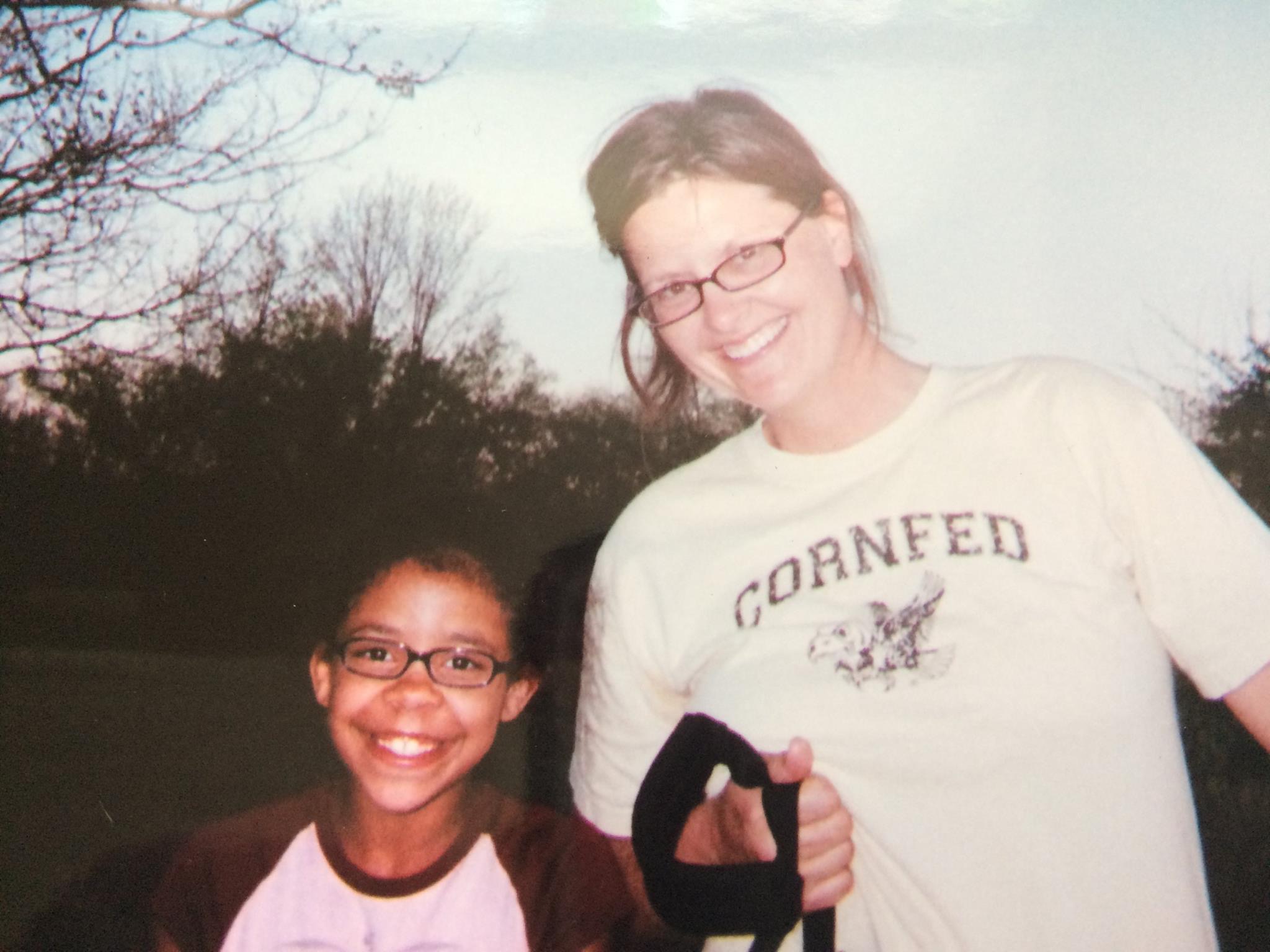
Rebecca met Disc Golf Hall of Famer Des Reading at an early age. Photo: Rebecca Cox
How would you describe the state of FPO right now with the later tee times, more coverage, the growing numbers and the competition?
Wow. There’s so much going on right now in FPO. The tee times, that takes some getting used to. A lot of the women, including myself, used to complain about teeing off early in the morning and now it’s like “what am I supposed to do all day? I don’t even know.” It’s been an adjustment but the coverage has been so amazing.
With the increased coverage, it’s so great to get women’s disc golf out there to show ladies that we’re out competing and that they can get out there too.
I think a lot of women have the potential to win these tournaments. I don’t think we are in an era of just Paige dominating every single weekend. Don’t get me wrong, she’s playing amazing and has been dominant. But any given weekend, it can be anyone jumping up there and winning. We’re competing with her. It’s been a lot of fun to see.
How have you seen FPO grow over the past few years?
Those first few years, it was the same ladies over and over again. The same top card — Paige (Pierce), Catrina (Allen), Sarah (Hokom), you know, the usual top crew.
Nowadays, you’re seeing so many new faces competing for the top five, the European ladies, the younger girls coming up, a girl like Heather Young. She’s good. Like crazy good.
It’s crazy to see those top dogs still at the top and now we have this younger generation coming up quickly. It’s just like, man, I thought I was supposed to be the young kid.
You’re a veteran out there, not a rookie anymore. Have you talked with any of the younger girls about playing?
I remember talking with Heather’s father a little bit about her traveling. She’s so talented and such a sweet girl. It would be awesome to see her at these big tournaments but now it’s a matter of logistics. It’ll happen soon and she’ll be fighting for one of those spots. The day will come with a lot of the younger girls touring more and that will be awesome to see. It’s heading that way.
You were involved with the diversity panel with the Disc Golf Pro Tour. What was that experience like and what were some of the things you learned from those discussions?
It was super nice for the DGPT to acknowledge that side of everything. I feel like it’s easy for everyone to ignore and some people don’t think it’s even an issue. I mean, that’s fine, but usually the people who don’t think it’s an issue are ones who seldom encounter diversity in their everyday lives.
For the most part, the disc golf community is accepting. It was nice to have a discussion with other black athletes and other minorities about what it’s like to be in this sport as a minority. It was a way to get our voices out there not only to explain it to other people but also to inspire those other people that don’t feel like they’re a part of the community to get out and be a part of the community.
Now that there are younger females playing, how have you embraced being a role model with the position that you’re in?
It really wasn’t something I thought about until the past few years. I just remember being at Beaver State Fling. People are always asking you to sign their discs and sometimes it would be families, which is cool. I remember a black family coming up to me and saying “Wow, our daughters look up to you and they watch you every time.” It was like, wow, it really clicked in my mind that there are younger girls out there like that. I didn’t even realize that I could be someone that girls look up to. I really didn’t think of myself as someone like that until that moment. It was so special to me.
Rebecca recently created the Diversify Disc Golf group on Facebook.
